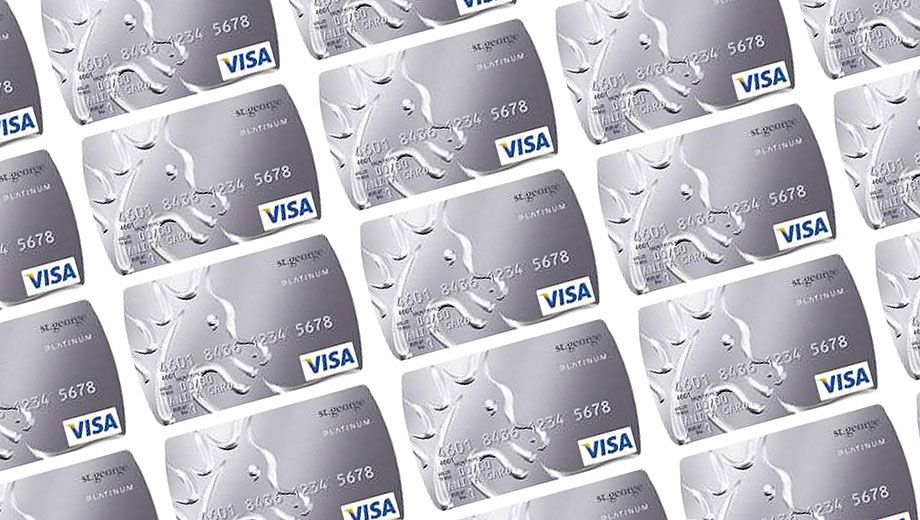St George Platinum credit card travel insurance reviewed

Disclaimer
Executive Traveller may receive a commission when you apply for these credit cards via our links.
The information provided on this page is purely factual and general in nature. You should seek independent advice and consider your own personal circumstances before applying for any financial product.
How it compares:
Out of the credit card travel insurance offers we compared (NAB, Commonwealth Bank, Westpac, St George, ANZ and American Express), St George's platinum card travel insurance policy was good in some areas but with some serious limitations.
Its strengths include good rental car excess reimbursement cover ($5000) however it is limited to sedans and stationwagons only; good claiming maximums for personal property theft or damage. However, it bizarrely doesn't cover items you lose in a public place -- which seems like a major problem for a travel insurance policy. There are some other things the policy leaves out that are present in other banks' credit card insurance, too, like coverage for missed travel connections.
Like all credit card travel insurance, trips you make are not automatically covered all year round -- you have to buy 90% of the cost of your return overseas travel tickets on the card to qualify.
Who's covered:
The cardholder, their spouse and dependent children for overseas trips of three months (plus another month if you are delayed beyond your control).
Good or bad? Below average for platinum credit cards, however this platinum card has an annual fee of $89, which is close to what's usually charged for gold cards, so it could fairly be compared to a gold card -- and for gold cards, three months is average.
When the policy kicks in:
In order for the insurance cover to be activated, 90% of the cost of your return international travel ticket must be purchased on the St George Platinum credit card. St George is one of the few banks that will also cover trips where you've purchased a flight on Qantas Frequent Flyer points -- as long as you have transferred 30,000 points or more in the month prior to redeeming the award ticket.
Good or bad? Average for platinum credit cards -- it leaves a little flexibility to pay a cash deposit of up to 10% to secure the flights at a travel agent if necessary. However, other banks do have easier-to-qualify travel insurance policies. ANZ Platinum cards, for example, cover you after you've spent $250 of trip (travel/accommodation/hire car/tour) costs on the card. St George's policy pretty much ensures it can only ever be used for personal travel, because it can't cover trips where the travel is paid for by someone else.
Excesses:
If you run into trouble on your trip, and need to use the policy, you'll have to pay the first $200 of claims. However, St George's policy goes over and above the norm -- it states that if you make multiple claim types as the result of one event, you only have to pay the $200 excess once. You also don't have to pay any excess at all for replacement of your travel documents, credit cards or a small amount of emergency clothes and toiletries if your luggage is lost/delayed.
Good or bad? Good for a credit card travel insurance policy. Most policies require you to pay an excess for each and every claim type you make.
Medical coverage:
Unlimited "reasonable" medical treatment. Cash in hospital reimbursement of expenses up to $100 per day (up to a maximum of $12,000.) Emergency dental treatment to relieve urgent pain only up to $1,250.
Good or bad? Good -- St George's insurer does say medical care must be "reasonable" but defines that as equivalent to the standard of care you'd get in Australia, which clarifies things well. The dental treatment limit is on the low side compared to other credit card travel insurance policies, though. The cash in hospital daily amount and maximum is good - the only better card we reviewed was NAB Platinum, which offered up to $15,000 cash in hospital at $100 per day.
Pre-existing medical problems:
The insurer that provides this policy, Zurich, says it will consider applications for pre-existing medical condition coverage if you contact them before departing on your trip and pay an assessment fee (plus extra premium if required).
Good or bad? Average -- most credit card travel insurances offer to consider your pre-existing medical conditions on application. The only better card we reviewed was ANZ's Platinum card, which automatically covered a list of pre-existing medical conditions.
Income protection:
This policy pays up to $1,000 per week in lost income benefits if you get injured while overseas and aren't able to work due to it for up to 12 months after the trip. The maximum they'll pay is $12,000, so you get three months' of salary at the equivalent of $52,000 p.a. (bear in mind you do have to pay tax on income protection payments.) Note, this income protection doesn't cover you for sickness -- only injury, and it also won't kick in until one month after you were meant to return to work in Australia.
Good or bad? Good. Some credit card travel insurance doesn't offer income protection at all, and others have pitifully low limits like $950 per month -- whereas St George's policy pays $1,000 per week.
Death while travelling:
The policy provides $750,000 for the death of a cardholder, $100,000 for spouse, or $25,000 for a dependent child in a transport accident.
Good or bad? Average for a platinum card. However, though St George's insurer pays $750,000 if the cardholder dies in a transport accident, the policy says that if there are numerous (unrelated) St George cardholders or their family killed in the same accident, the most it will pay in total for everyone is $1.25million, which means the insurance is good for a bus or taxi crash with a smaller number of passengers, but possibly not so good for plane crashes where there may be many St George cardholders on board.
Accidental death:
Accidental death (not related to a transport accident, up to 12 months after some other sort of related accident) are $20,000 for the cardholder or their spouse. There is no cover for a dependent child.
Good or bad? Bad for a platinum card -- among the lowest accidental death benefits of any of the credit card travel insurances we looked at, except American Express Platinum Edge, which only covers death due to a transport accident. NAB's Gold Card has higher benefits than this platinum card, which is surprising -- $100,000 for accidental death of the cardholder.
Theft/loss/damage:
Up to $15,000 for cardholder and a maximum of $20,000 for all family members combined. Sub-limits of $5,000 for any one item of clothing, electronics or laptops. Up to $500 per person cash is covered. Up to $500 per person in emergency clothing & toiletries if your baggage is lost/delayed (max $1,000 for a family.) A maximum of $2,500 worth of items left in a locked car are covered. However, the policy excludes items "left behind, forgotten, or misplaced in a public place", which basically counts out anything you lose while travelling -- a very significant exclusion.
Good or bad? Bad - although the maximum dollar limits are good for a platinum card, the exclusion of lost items seems ridiculous for a travel insurance policy. On the other hand, it's good that items left in a locked car are covered, as well as some cash.
Rental cars:
$2,750 while overseas, or $1,500 in Australia. Only covers sedans and stationwagons, not any other type of car such as 4WD or campervan.
Good or bad? Average for a platinum card -- and the limitation preventing coverage if you hire anything other than a sedan or stationwagon is pretty rough and would catch a lot of people, out.
Travel delays:
After 6 hours' delay, the insurance will pay out up to $475 per person in expense reimbursements, to a total maximum of $1,100. There is no coverage for missed connections, though.
Good or bad? Average for a platinum card -- however it's not good that there is no coverage for missed connections. In comparison, NAB's platinum card provides $3,250 worth of cover for missed connections.
Toll free number:
You can call the insurer reverse charges from anywhere in the world, so you won't have to pay for international phone calls, in case of emergency while overseas.
Good or bad? Good.
What they don't cover:
You need to read the whole policy to see everything that's not covered, but some things that particularly stood out to us were: Any item items "left behind, forgotten, or misplaced in a public place". If you ignore warnings from government, official bodies or news reports. Items left in a car overnight or in view. Items used for a business purchase or owned by a business. Any terrorist event. Putting yourself in danger. Alcohol or drug influence. Any professional sport; most adventure sports. Any clothes being laundered. Any "atmospheric conditions" including flood. You not taking "adequate precautions" at any time. Computer software or non-tangible items; cash; any second-hand item; any valuables like jewellery or electronics in checked baggage; any disappearance of personal property that can't be explained to the insurer's satisfaction; a travel provider going out of business.
Good or bad? Bad - the exclusion for items "left behind, forgotten, or misplaced" is ridiculous -- losing stuff while travelling is one of the key reasons for having travel insurance. The exclusion for any disappearance of property that can't be explained to the insurer's satisfaction is a bit dodgy too -- it leaves a fair bit of wiggle room for the insurer to say they don't accept your explanation of how something was stolen.
St George's platinum credit cards with travel insurance:
- St George Platinum Credit Card
annual fee $89.00, interest rate 15.99% purchases / 21.49% cash advances
St George's website about platinum credit card travel insurance:
http://www.stgeorge.com.au/credit-cards/platinum-insurance-services/
Full St George Platinum Credit Card travel insurance policy PDS document:
http://webapps.stgeorge.com.au/pds/redirects/CreditCardsTerms/
This article was written based on the product disclosure statement available on the St George's website on 1st December, 2010. Insurers can change the wording of policies they are selling at any time, so be sure to read the product disclosure statement yourself before signing up. Additionally, this article should not be taken as formal financial advice. You should consult a qualified financial planner.
Disclaimer
Executive Traveller may receive a commission when you apply for these credit cards via our links.
The information provided on this page is purely factual and general in nature. You should seek independent advice and consider your own personal circumstances before applying for any financial product.

Hi Guest, join in the discussion on St George Platinum credit card travel insurance reviewed